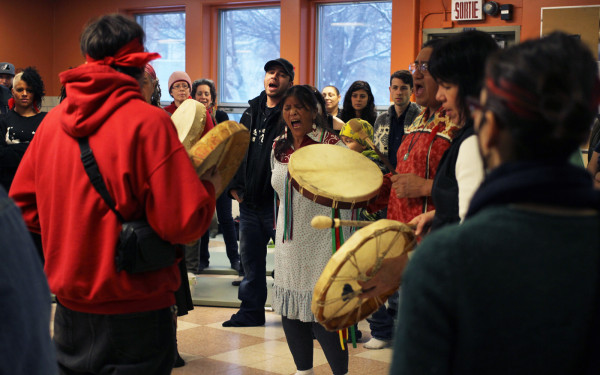Editorial
Idle No More
While we were out, there was something of an awakening across Canada.
People all over the country have been gathering to voice their dissent with the status quo when it comes to First Nations poverty and shrinking environmental regulation. The push for a more multilateral and just approach to First Nations policy has inspired thousands to learn more and have their voices heard—and the headlines have followed.
By the time we were all back in Montreal however, a shocking amount of stereotyping and ignorance had begun to fester in the online commentary sections of our country’s largest news providers. Frankly, they reached a whole new—and downright racist—low.
In a recent National Post Full Comment article, Barbara Kay pointed out what she claims is “what-everybody-else-was-thinking”—that Attawapiskat Chief Theresa Spence is actually on more of a detox diet than a sacred fast.
While Kay opted to focus her criticism nitpicking the criteria of a health cleanse vs. a starvation diet, she completely missed the point, and overlooked the cause.
The Post columnist’s ignorance aimed to reduce the hunger strike to an isolated, unimpressive event, but hundreds of people around the country have joined Spence in her fasting.
Last month, 10 women spent four days fasting in solidarity with Spence, some traveling for days to spend time at her camp; several chiefs and members of First Nations communities have done the same. A national 24-hour fast is planned for Jan. 11—the one-month anniversary of Spence’s campaign.
The Globe and Mail ’s Jeffrey Simpson, meanwhile, dismisses that there is any real social movement happening at all. Simpson wrote in a Jan. 5 column that First Nations people are living in a “dream palace” if they think they can hold onto the culture of their ancestors.
He wrote that the only communities that have any hope of surviving must join in the exploitation of nearby natural resources, which he argues should be “the driving thrust of all public policy.”
The article condescendingly put “rights” and “nation” in quotes, the tone throughout implying First Nations should consider themselves lucky that Canada has allowed them to continue existing in any capacity. His suggestion was that they must assimilate and destroy their land or get lost in the shuffle.
Simpson disregards the movement, consequently missing out on the educational component of Idle No More. The teach-ins are at least as integral to this whole thing as the widely publicized blockades are, and present this movement as a time for learning.
The more that Canadians embrace this opportunity, the more we’ll be able to do away with the hateful responses from all those self-described responsible taxpayers gracing the comment sections at the bottom of our national newspapers’ online articles.
Bill C-45’s changes to both the Indian Act and the Navigable Waters Act can be seen as the breaking point in the First Nations community, but both follow the federal government’s other failings in environmental stewardship.
A notable example is the Conservatives’ other omnibus bill this year, the “budget” bill, which allows cabinet ministers to disregard the recommendations of environmental assessments, shrinks the number of protected waterways and relegates development decisions to provinces that lack the resources to test their potential environmental impact.
But this environmental discontent is about more than a couple (giant) pieces of legislation.
The federal government’s policy reflects a desire to move petrol out of this country as fast as possible, yet it is blind to the Arctic ice sheet—which is decaying at a rate more rapidly than anyone expected—and First Nations downstream from oil sands developments being poisoned.
The impacts of climate change have become more and more apparent; no one can say this is “just a Native thing.”
As much as this is a movement for everyone, however, it’s extremely important to remember it’s being driven by First Nations peoples: those affected day-to-day by disproportionate poverty, levels of incarceration and unsolved cases of missing or murdered women.
How do these communities fit in today’s “settler” world? How do you combat institutionalized corruption, which no one can argue is exclusive to First Nations band councils?
These are issues that have only become more strained with Bill C-45 and other legislation—more so because, so far, the federal government has avoided including Native peoples in the decision-making process.
The living conditions of First Nations peoples are a complex problem of historical persecution, cultural disconnect and abuses of power. Little can be done when placing the blame solely on one side, and no one thinks the current situation is doing any good.
Therein lies the power of Idle No More: to lay bare these systemic issues of poverty and environmental degradation while ensuring ignorance becomes a political impossibility.
Come Friday, when Prime Minister Stephen Harper meets with First Nations leaders, the coinciding global Day of Action will be outside in the streets—readying the push for change.

_900_450_90.jpg)


_600_375_90_s_c1.jpg)
_600_375_90_s_c1.jpg)
0_600_375_90_s_c1.jpg)
